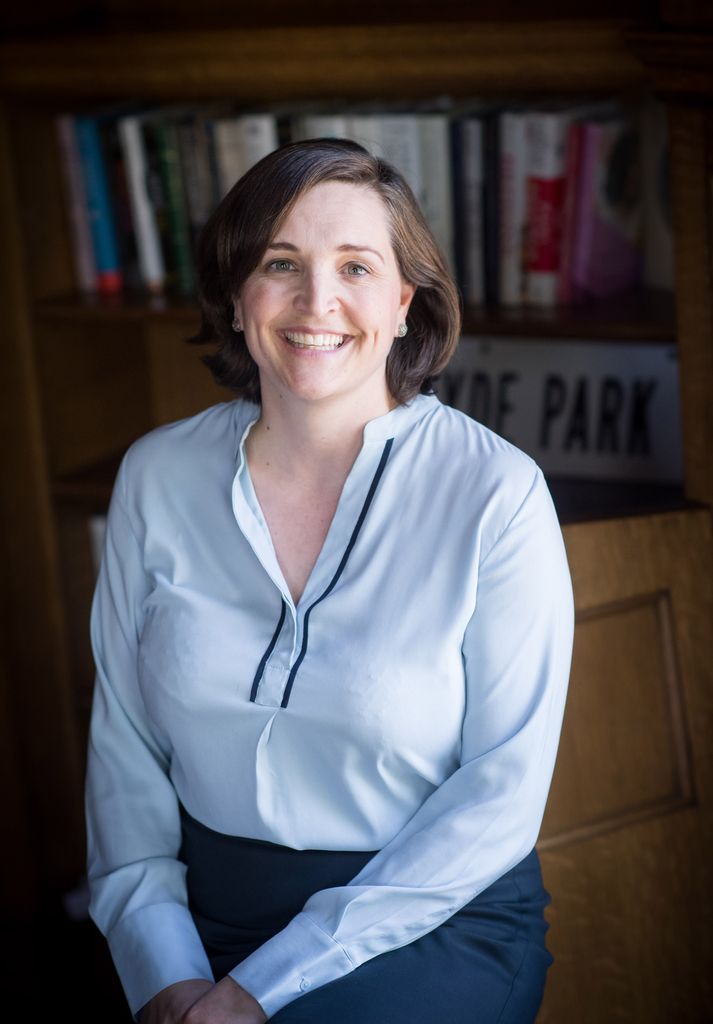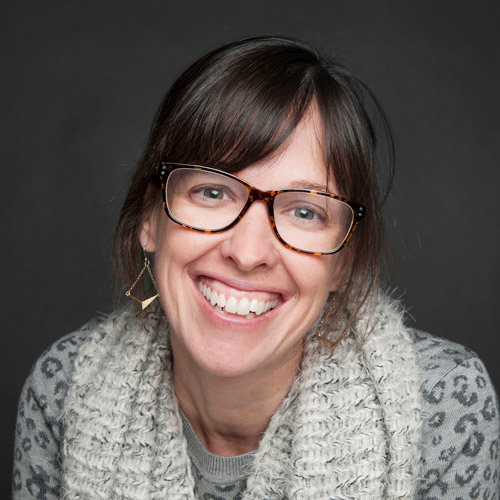BU’s Initiative on Cities Gets New Codirector
Katharine Lusk has played a key role in University’s urban research

Katharine Lusk, who helped grow BU’s Initiative on Cities (IoC) into an urban information highway where data travels between political leaders and academic researchers, has been promoted to codirector of the institution.
Lusk, who has been the IoC’s executive director since its founding in 2014, will retain those duties. She came to BU at the behest of the late Thomas Menino (Hon.’01), longtime Boston mayor, and is taking his old title as codirector. She had served as a policy advisor to Menino at Boston City Hall prior to his arrival at the University, spearheading his efforts to make Boston the first city in the country to achieve pay equity for women. Prior to entering public service, she worked as a brand strategist and researcher for several Fortune 500 companies.
“The new title is a reflection of the evolution of my role,” Lusk says. She has “been playing an expanded role with regard to research,” leading studies, for example, of policy networks among cities and mayors’ action on public health.
She and Lucy Hutyra, a College of Arts & Sciences associate professor of earth and environment, have worked on a project, funded by the National Oceanic and Atmospheric Administration, to hook up city leaders and carbon-cycle researchers to assist municipal efforts against climate change. Lusk also cites several projects with Azer Bestavros, a William Fairfield Warren Distinguished Professor, a CAS professor of computer science, and founding director of BU’s Rafik B. Hariri Institute for Computing and Computational Science & Engineering, including a paper on effective ways that cities, universities, businesses, and federal agencies could collaborate on community problems.
For students, she helped spearhead MetroBridge, the IoC program that has various BU classes team up with New England municipalities to address urban problems.
“Katharine’s vision and drive have been central to the success of the IoC,” says Graham Wilson, founding codirector of the IoC and a CAS professor of political science. “Her new title reflects the reality of her important role. I’ve greatly enjoyed working with Katharine and look forward to continuing to do so.”
As codirector, Lusk says, she hopes to launch new IoC initiatives, including a nascent “public impact fellowship,” to “equip more tenure-track and tenured faculty with the knowledge and skills needed for policy impact.”
“We see some of this work happening already but have heard from faculty that they wish they had an expanded toolkit to draw on as civically and politically engaged scholars,” she says. “It’s been rewarding to lead some related efforts for doctoral students as part of BU Urban,” the University’s new PhD program teaching interdisciplinary skills in addressing urban pollution and extreme weather events. “I’m looking forward to building on that” with faculty, she says.
In fact, this is something of a golden age for “being an urbanist at BU,” says Lusk, who serves on the advisory boards for BU’s Center for Innovation in Social Work & Health, the City Planning and Urban Affairs program, the Institute for Sustainable Energy, and the Urban Climate Initiative, and is a Hariri Institute fellow.
“I’m a firm believer that the way we break down barriers between silos is by connecting people, and I enjoy being a human bridge. My peers at other institutions think I’m a bit nuts to serve on so many advisory boards,” with city-related student work happening at numerous BU programs. But “it’s important to have a seat at different tables, to be able to offer my perspective, connect people with common interests, and bring the perspectives and lessons of others into our work.”


Comments & Discussion
Boston University moderates comments to facilitate an informed, substantive, civil conversation. Abusive, profane, self-promotional, misleading, incoherent or off-topic comments will be rejected. Moderators are staffed during regular business hours (EST) and can only accept comments written in English. Statistics or facts must include a citation or a link to the citation.